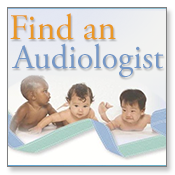Making Decisions

"As a baby, we taught Alex to speak and listen. When he was 4, we noticed that he learned best through seeing. So we now use Manually Coded English." ~ Jim
Your child will grow and your family will change. Decisions that may have been good for your child as an infant may not be the best for your child as a toddler. This includes how your child learns to communicate. As your child grows older, you may find that you need new language and communication plans to meet your child’s changing needs. As he or she becomes an adult, your child may wish to make his or her own changes. Some families will change more often than others. Decision-making is a process just as your child’s growth is a process.
CDC’s Decision Guide to Communication Choices for Parents of Children who are Deaf or Hard of Hearing [PDF – 296 KB] will help guide you through the steps in deciding about communication.
Opinions of Others
As you gather information and make decisions, you will meet people who have strong opinions. Some of these opinions might come from well-meaning relatives, friends, other parents, professionals, deaf and hard-of-hearing adults, or even the media. These opinions may seem to favor the choices you have made for your child. Or these people might offer opinions about communication strategies that you may wish to consider for your child. However, these opinions may go against your decisions about services and programs that you have chosen.
Many parents question their own decisions when this happens. You are making the choices for your own child and family. Others’ opinions may be a good way to gather information about different services and programs, but please remember that your decisions about your child’s future are the ones that matter.
